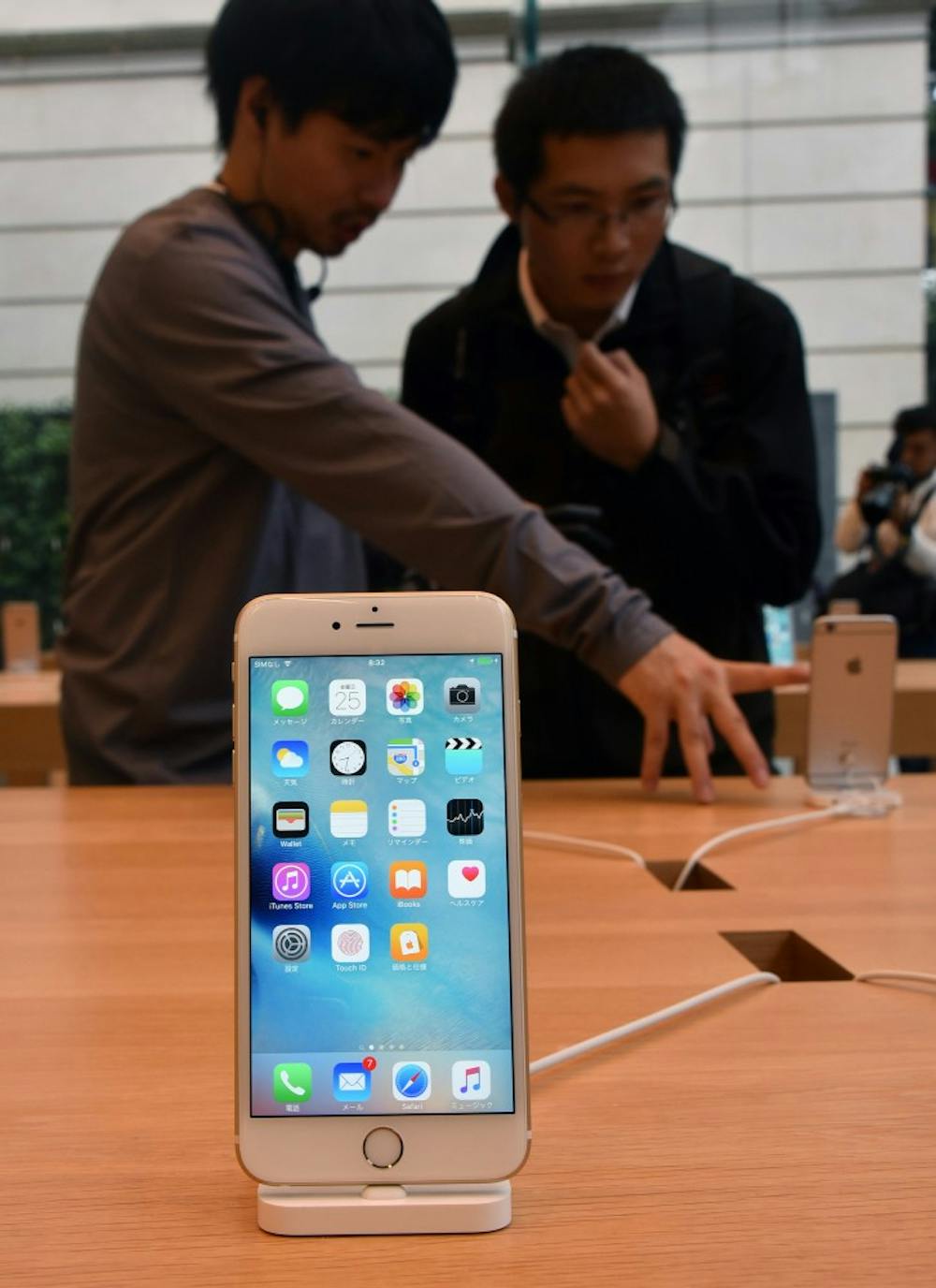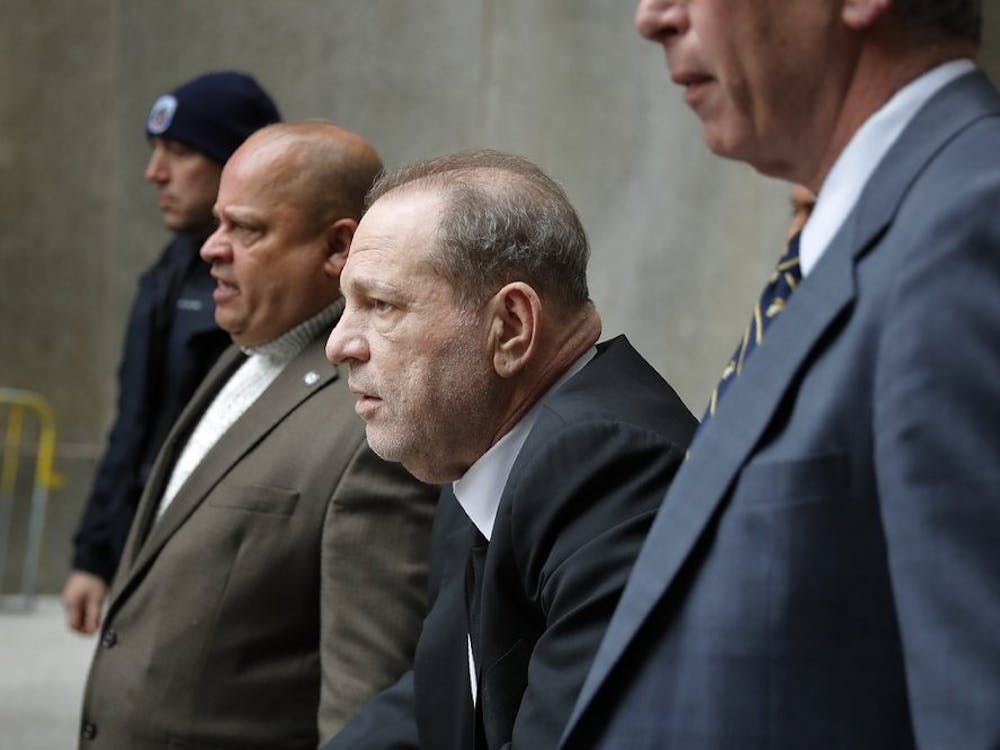A recent study published in Sage Publications has found that cellphone use is associated with decreased academic performance in college students—something that isn't new to college professors.
The study reported Facebook and texting multitasking were negatively and significantly related to college GPA. Another contributing factor to lower grades could be the of 300 minutes per day average students are spending on their phones, according to the study.
Although many Ball State professors have technology policies in their syllabi, enforcing cellphone usage still varies across the campus.
Until this semester, Honors College professor Jason Powell didn’t have a firm stance on cellphones in his classroom. Powell said cellphones used to be little to no distraction in class, but in recent years, they have slowly started to become a problem.
“It used to be that ... there was this understanding in the classroom that habitual phone use wasn’t going to be okay,” Powell said. “Recently, I started having to tell students to put their phones away during our class time, and it’s led up to me having to set up some consequences.”
Powell included a cellphone policy in his syllabus this semester, and for the first time, he’s included consequences—grade deductions for students who he sees on phones during instruction.
“It’s not something I want to do, and I’m definitely not out to get anybody for just glancing at their phones,” Powell said. “But when it gets so ridiculous that students are just plain losing focus and valuable learning time, I have to do something about it, and that means grades might have to suffer.”
In the past, Powell said he’s had to tell students six or seven times in one class to put away phones.
“Cellphones have become second nature, and I think it’s coming to the point where some students don’t even realize they’re on their phones—whether it’s for five seconds or five minutes—during class,” Powell said.
Powell said his repercussions for cellphone use during class are not the only of their kind on campus, and some students are finding the policies beneficial in the classroom.
Freshman music education major Julie Stuckert said having rules for technology helps her focus, especially in music performance classes.
“In orchestra, there's nothing more irritating than people not knowing when to play or what's going on because they were scrolling through Yik Yak,” Stuckert said. “I've seen a lot of people in my classes who are more interested in hiding their cellphone from the professor than in putting the cellphone away and actually learning something. Cellphones are nothing but a distraction.”
Other students, including freshman education major Kyra Hunt, disagree with phone policies, especially in a higher education setting.
“It’s college, and I think students should be responsible for their own learning,” Hunt said. “If they don't pay attention and are on their phones instead, then it’s their fault, not the professor's.”
In several of her classes, Hunt said her professors encourage students to collaborate as a team, allowing cellphones to assist in group research and discussions. Without the ability to use technology, Hunt said students are being held back from doing better work in the classroom.
“It can definitely be hurtful for students who abuse the freedom in classes that allow the cellphones,” Hunt said. “[Students] are paying to be here, and can choose to get out of the class what they will as long as it is not disrupting anyone else's learning.”
As a university Spanish professor, Lisa Kuriscak is not completely against the use of cellphones during class. She said the mental intensity required to comprehend and learn another language keeps most of her students engaged in class from the start.
“There are times during class when pulling a phone out might be beneficial for a task or activity,” Kuriscak said. “I might not be available to answer every single ‘How do you say this?’ question, so if a student is able to look up a word they’re having trouble with, I’m okay with that.”
Kuriscak said that although she doesn’t mind brief cellphone use in class, it’s only allowed when students need a resource during her approved times in class. When it comes to student accountability, Kuriscak said she leaves it up to the students to make their own choices.
“It really comes down to trusting students to make the right decisions,” Kuriscak said. “I’m not going to go after every student I see on a phone, but I will have a conversation with anyone I think is struggling with keeping their attention away from what we’re doing in class.”
Sophomore zoology major Jessica Ramos complimented classroom policies like Kuriscak’s. She said some recreational phone usage can help in certain classroom settings.
“I think general cellphone use can be hurtful and distracting in class, but listening to music can be helpful, because many students listen to music when studying,” Ramos said. “In my math class, we’re allowed to plug our headphones into our phones and listen to music, and I think this is a really helpful policy to have.”
Although she’s not allowed to have her phone out during tests or quizzes, Ramos said the loose monitoring during classroom work times help her get work done.
“Even though there are stipulations, I don’t think it’s a strict policy, and it’s actually really helpful,” Ramos said.





